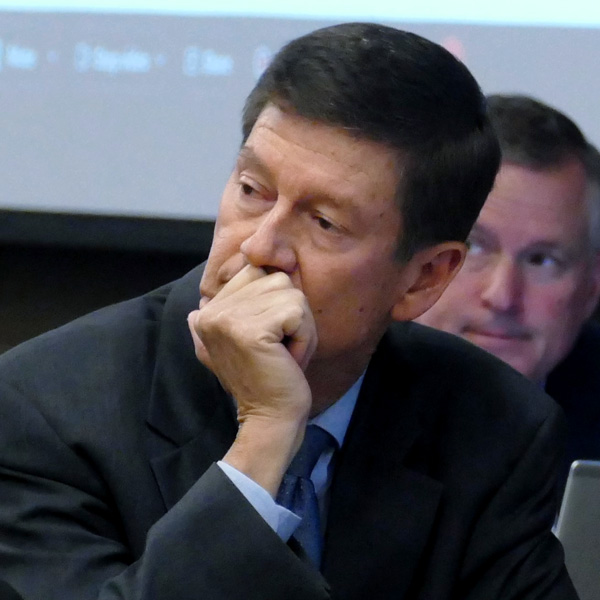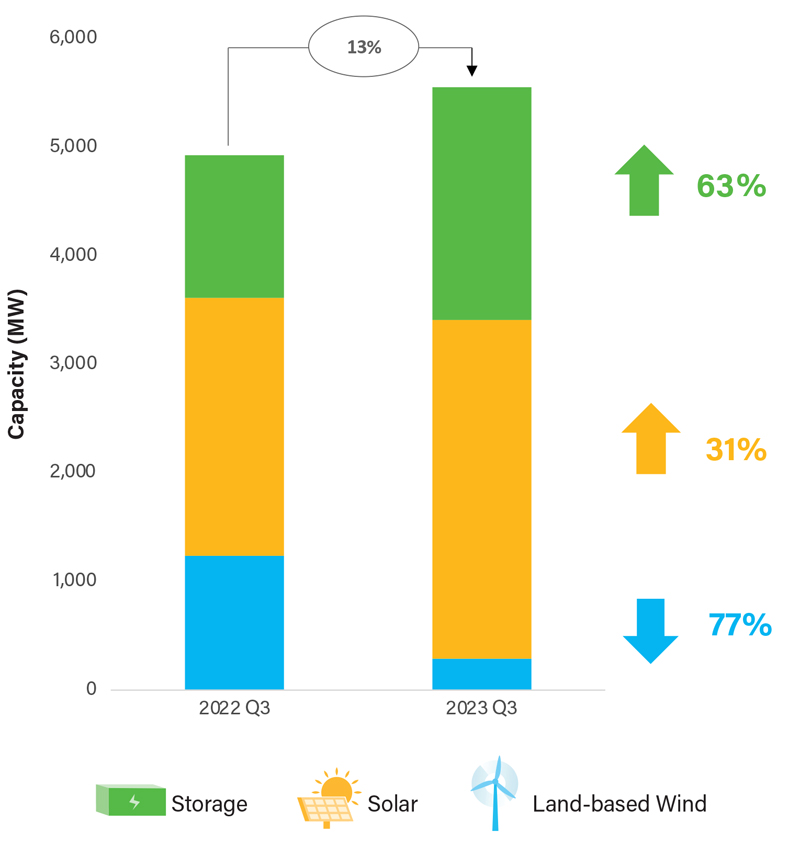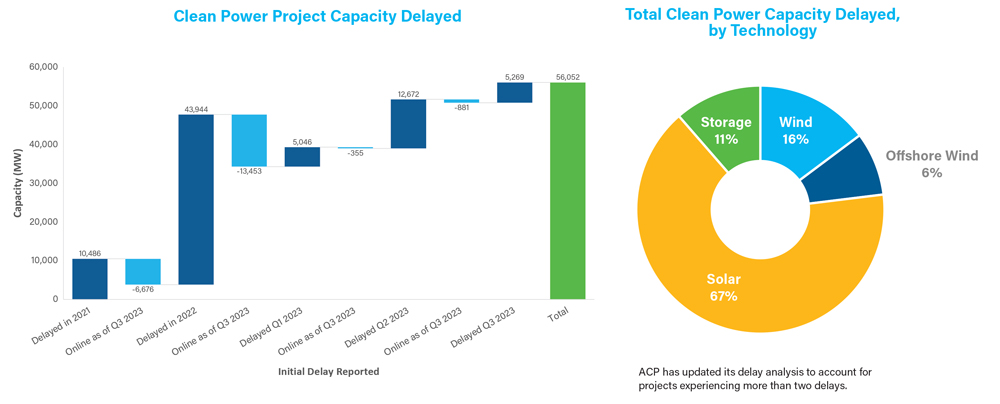LITTLE ROCK, Ark. — SPP’s membership elected Stuart Solomon and Irene Dimitry to three-year terms on its independent Board of Directors during last week’s Annual Meeting of Members.
Current board member Liz Moore also was elected to serve a second term, having joined the board in 2020. All three selections are effective Jan. 1.
Solomon, who has more than 30 years of utility experience, is a familiar presence among SPP members. He served on the Members Committee during his 14 years as Public Service Company of Oklahoma’s president before retiring from American Electric Power in 2019 as senior vice president of generation services. Solomon was at Central and South West Corp. when the company merged with AEP in 2000.
“One hundred percent he knows what he’s getting himself into, which I love about Stuart,” CEO Barbara Sugg said during the board’s Oct. 31 meeting. “Yet, he’s still excited about continuing to talk about [SPP members] and anything else.”
“It’s a very important time of transition in the electric utility industry, and SPP is well positioned to lead the ongoing evolution of the industry,” Solomon said in a statement. “I’m excited to be part of such a dynamic and forward-thinking organization during this time.”
Dimitry retired in 2020 as vice president of renewable energy at DTE Energy, where she led the launch and daily operations of the company’s renewable energy business. She has more than 26 years of utility experience.
“The clean energy transition will bring many changes and innovations over the next few years,” Dimitry said. “I look forward to working with management and stakeholders as SPP’s regional role grows and evolves.”
Solomon and Dimitry will replace long-time directors Josh Martin and Larry Altenbaumer. The two, who have almost 38 combined years on the board, are retiring at the end of December. (See “Board Search Underway,” SPP Board/Members Committee Briefs: July 24-25, 2023.)
The board recognized Martin and Altenbaumer with honorary resolutions and standing ovations during the meeting, along with a dinner where they were joined by former SPP CEO Nick Brown and former director Graham Edwards. Brown and Edwards left during the COVID-19 pandemic and did not receive honorary fetes.
SPP’s membership also approved 16 nominees to the 24-person Members Committee. All but two were incumbents; Google’s Betsy Beck and Evergy’s Kayla Messamore will begin three-year terms in January representing the large retail customer and investor-owned utility segments, respectively.
The small retail customer segment’s seat remained vacant.
Texas’ McAdams to Lead RSC in 2024
The Regional State Committee, comprised of state regulators from SPP’s footprint, elected its leadership for 2024 by approving a committee’s recommendations in a voice vote.
Texas’ Will McAdams will serve as the RSC’s president. He already chairs SPP’s REAL Team, in addition to his day jobs on the Public Utility Commission and helping manage the family farm near College Station.
Referencing McAdams’ leadership in guiding the REAL Team as it assesses SPP’s current resource adequacy construct and makes policy recommendations, Sugg said, “If we’ve got the will, we can get this thing done, and I think we’ve got Will McAdams.
“I can’t commend him enough,” she added. “From the conversations I’ve had with people who were and from what I observed from somewhat of a distance. He just did a remarkable job and I’m so thrilled that we had his leadership involved in terms of moving this thing forward.”
Minnesota’s John Tuma will serve as the RSC’s vice president and Nebraska’s Chuck Hutchinson as its secretary and treasurer.
The RSC also considered two motions related to SPP’s safe harbor criteria used to determine which project costs should be borne by the load-serving entities (LSEs) making long-term transmission service requests (TSRs). The safe harbor exempts LSEs from upgrade costs when a TSR meets the aggregate studies’ waiver criteria, which include:
-
- Wind generation not exceeding 20% of designated resources;
- A minimum five-year term for designated network resources TSRs; and
- Designated resources not exceeding 125% of forecasted load.
The commissioners rejected the Cost Allocation Working Group’s recommendation to eliminate the 20% wind criteria but approved its proposal to increase the resource limit from 125% to 100% plus the higher of summer or winter seasonal planning reserve margin plus 10%.
Future RSC Members Observe
Several potential future RSC members joined the table for an up-close look at how SPP stakeholders make the sausage: Colorado’s Eric Blank, Utah’s Thad LeVar and Arizona’s Kevin Thompson.
Their three commissions would be eligible to appoint representatives to the RSC as SPP’s RTO West is stood up and begins operations in 2026. The grid operator uses an outreach program when it anticipates additional states will become part of the footprint.
Mary Throne, who chairs the eligible Wyoming Public Service Commission, also has attended SPP meetings this year. The Wyoming commission is eligible to join the RSC.
Calling RTOs a “significant milestone in the western United States,” LeVar said, “I appreciate the chance to watch this mature and useful process that happens here and I look forward to the tariff development that will happen between now and implementation of RTOs.”
Thompson said Arizona is determining whether to join SPP’s Markets+ “RTO-lite” day-ahead market or CAISO’s Extended Day-ahead Market (EDAM).
“There’s a lot to learn,” he said. “I’m here to learn, I’m here to absorb and to take in everything that I can to make sure that [at] the end of the day, our utilities are protected and that our consumers are protected.”
Blank, who chairs the Markets+ State Committee comprised of western commissioners, jokingly suggested a bylaw change, saying he would prefer a president’s title.
“I covet your title,” he told RSC President Andrew French.
Naturally, almost every speaker then addressed the committee’s leader as “President French” for the meeting’s duration.
Lucas, Rew Update Stakeholders
Antoine Lucas, SPP’s markets vice president, said during the quarterly stakeholder reports that the Integrated Marketplace set new records for maximum load (56.18 GW on Aug. 21), bettering the previous high of 53.24 GW set in July 2022, and renewable energy production (25.02 GW on Sept. 4). Wind accounted for 51.69% of the fuel mix at its peak Sept. 4.
Bruce Rew, senior vice president of operations, said load exceeded the 2022 record during 24 hours the week of Aug. 21.
Day-ahead prices and real-time prices both increased more than 35% from the second quarter to the third, Lucas said, a result of increased fossil fuel generation during late-summer calm days. Day-ahead prices were up from $24.17/MWh to $33.13/MWh and real-time prices went from $23.11/MWh $31.26/MWh.
The Marketplace has 331 participants.
Rew said SPP has received commitment letters from all nine utilities and Western Area Power Administration regions who want to be in SPP RTO West when it goes live, targeted for April 1, 2026. The commitment obligates them to reimburse SPP for development expenses if membership agreements are not executed in March 2026.
The western expansion will affect SPP’s existing members in the Eastern Interconnection as changes will be made to the settlements system and all market participants will have to go through some activities, Rew said. He expects about 15 revision requests will come before the board and RSC in January and April.
Lucas, who is leading the Markets+ development, said the project is on schedule to meet its target date, but that staff and stakeholders are working to mitigate issues that could cause delays. The project team plans to vet funding proposals with the Finance Committee in February.
“We’re spending more of our time focusing on areas where there are certain unique areas of western market operations that need slightly different market design to what we have here in the east,” Lucas said, a nod to greenhouse gas restrictions, congestion rent allocation and mitigation pricing for hydro storage.



